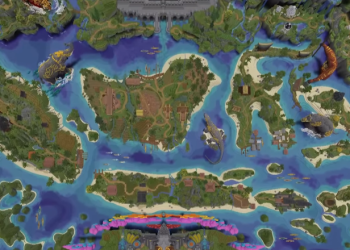Jakarta, Indonesia Sentinel — Indonesia’s Ministry of Health (Kemenkes) is developing an artificial intelligence (AI) tools designed to provide personalized treatment and medication recommendations for cancer patients, with the goal of improving early detection and therapeutic outcomes.
The project is being developed in collaboration with U.S.-based Perthera, a precision oncology company specializing in AI-driven cancer care, and PathGen, an Indonesian provider of molecular diagnostic services.
“Each cancer patient has different characteristics, which is why a one-size-fits-all approach doesn’t work,” said Lucia Rizka Andalucia, Director General of Pharmaceuticals and Medical Devices at the Ministry of Health, during a press briefing in Jakarta on Monday.
Lucia noted that Indonesia’s current capabilities in therapeutic decision-making using AI are still limited, which prompted the government to seek technological transfer and expertise from Perthera to accelerate local development.
She emphasized that the AI platform being developed in partnership with U.S.-based Perthera is expected to help accelerate recovery by enabling more precise therapeutic decisions.
“Our current technology for making treatment decisions is still limited,” Lucia told. “That’s why we’re transferring knowledge from Perthera to help us build an AI system capable of supporting personalized cancer therapy decisions.”
Read Also:
Indonesia to Introduce AI and Coding as Elective Subjects in 2025 School Curriculum
Beyond recommending treatment plans, the AI platform is also expected to assess the severity of cancer in individual patients and estimate optimal treatment timelines. “It can predict disease progression and help us make prognosis forecasts, which are critical for long-term patient management,” Lucia said.
AI Could Boost Survival Rates, Cut Treatment Costs
Dr. Susanti, CEO of PathGen, emphasized the life-saving potential of the technology, citing international studies that show AI-powered cancer care can increase patient survival rates by up to 2.5 times.
“Based on existing studies, including internationally published data, AI-driven technologies like this can increase the survival rate of cancer patients by a factor of 2.5,” Susanti said.
She added that by providing precise recommendations for medications and therapies, the system could also significantly reduce treatment costs.
“It can also reduce treatment costs by up to 30 percent, as the technology helps doctors select more accurate medications and therapies,” she added.
The initiative is part of Indonesia’s broader push to integrate emerging technologies in healthcare to improve outcomes and reduce inequality in access to advanced medical services.
(Raidi/Agung)

























